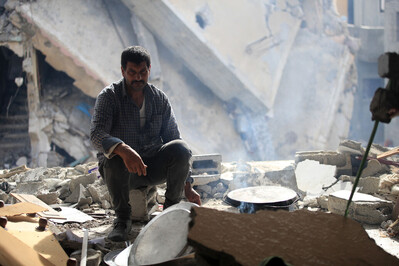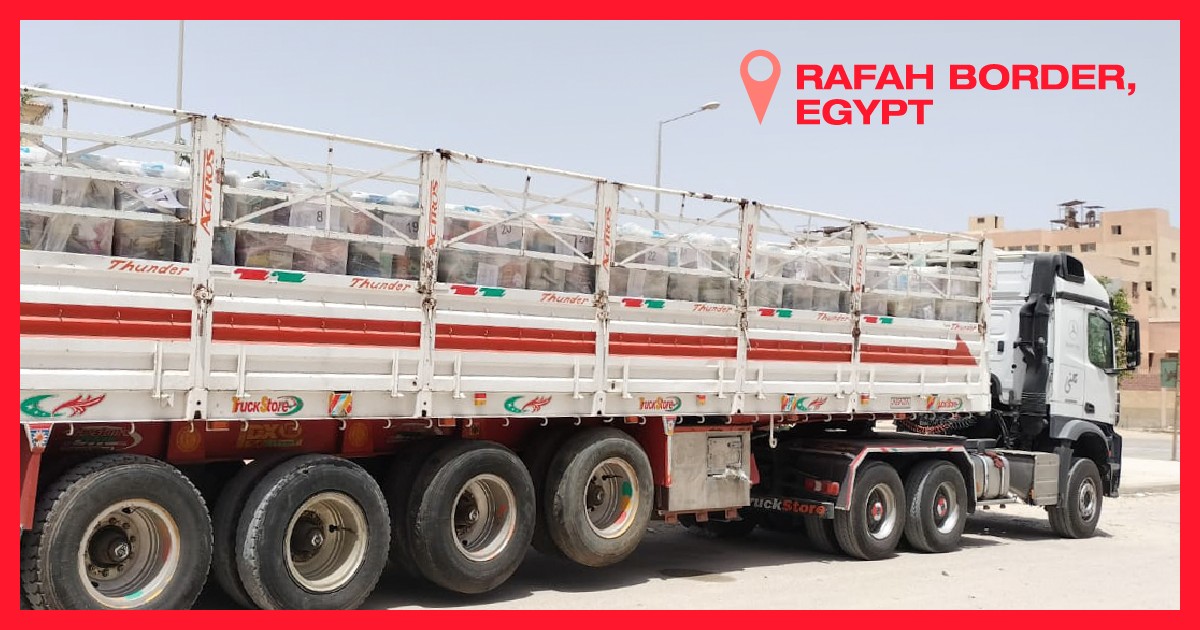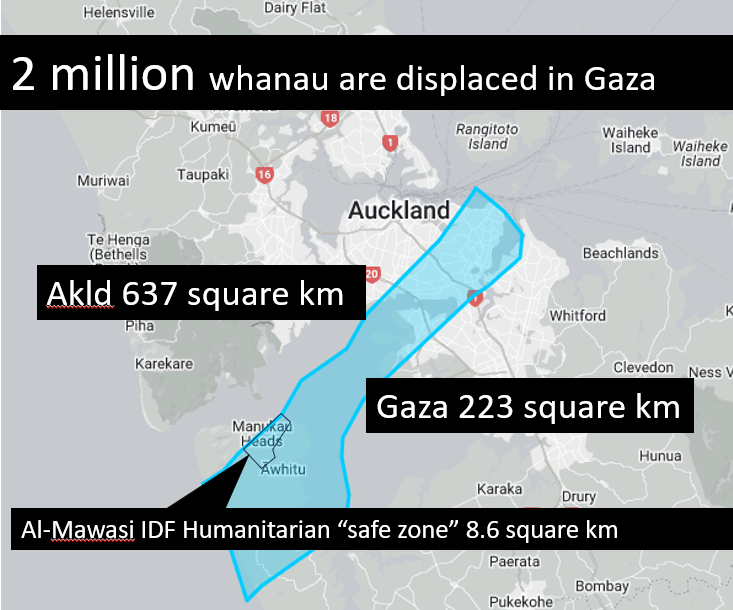Sign up to our Newsletter
Want to learn more about ShelterBox? Sign up to our newsletter to receive regular updates and more information about how you can get involved.
ShelterBox is responding to support displaced people in Gaza. Aid distribution will shortly commence.



Twice the population of Auckland are currently displaced within Gaza. Many seeking “safety” in an area the size of Takapuna – Devonport. ShelterBox is working with other humanitarian organisations including MAP (Medical Aid for Palestinians) to deploy emergency shelter and essential items to as many people in Gaza as we can support.
Together with MAP, we are procuring items in Egypt and Türkiye. As well as emergency shelter, ShelterBox and MAP will be providing blankets, mattresses, pillows, and floor mats to help people stay warmer and save lives. The aid package will include washing sets, water carriers, kitchen sets, and items like nappies, toothbrushes, sanitary items, and body/hair wash. Vital items for people with no belongings and unable to return home, or people who have had their homes damaged.
The situation is complex, but we intend that our aid will reach people in the coming weeks via the Rafah border crossing between Egypt and Gaza.
Please consider donating to our Gaza emergency appeal Givealittle page, or creating your own fundraising campaign.
It was a year in which extreme weather events, earthquakes and conflict creating significant need for emergency shelter.
In Türkiye and Syria we supported thousands of people with emergency shelter after the devastating earthquakes in February 2023. We also responded to help those left without shelter by the powerful Morocco earthquake in September. Just two days after this severe flooding impacted Libya, particularly the city of Derna. Despite the difficult operating conditions in Libya we were able to work with a partner to bring support to people in Derna impacted by the floods.
Another extreme weather event was the severe drought impacting the Horn of Africa. This has led to thousands of people being forced from their home in search of water, food and health care. This year we continued our work in Ethiopia supporting people impacted by the drought and violent attacks from insurgent groups. We also began working in Somalia, bringing shelter to those forced from their homes by the hard conditions.
Violence in Sudan that begun in April 2023 forced millions of people to flee their homes, many into neighbouring countries. In response to this we have begun working in Chad, providing shelter to those who have fled to the country for safety. And we have begun planning a response in Gaza in response to the violence there.
We also continued our work on projects in Ukraine, Yemen, Pakistan, Mozambique, Syria, Cameroon, and Burkina Faso. Work we could not undertake without your support.
Read our Reach and Impact Report 2023
Everyone deserves a place to call home.
Right now, over 100 million people around the world have been rendered homeless by disaster and conflict. We work to change this. By providing emergency shelter, tools, and household supplies to people displaced by disaster or conflict, we enable people and families to to stay together, to rebuild and recover – transforming despair into hope.
ShelterBox exists to ensure no one is without shelter after disaster. We often work in places others don’t, making sure we reach families who need support in critical situations. Our work is directed to people in the most precarious of situations, to help them gain some stability and calm and rebuild their lives following disaster or conflict.
Since 2000, from Cameroon to Syria, Ukraine to the Philippines and in our own Pacific home ShelterBox has provided shelter to over 2.5 million people.
Our mission is to work for a world where no one is without shelter after disaster.
Want to learn more about ShelterBox? Sign up to our newsletter to receive regular updates and more information about how you can get involved.